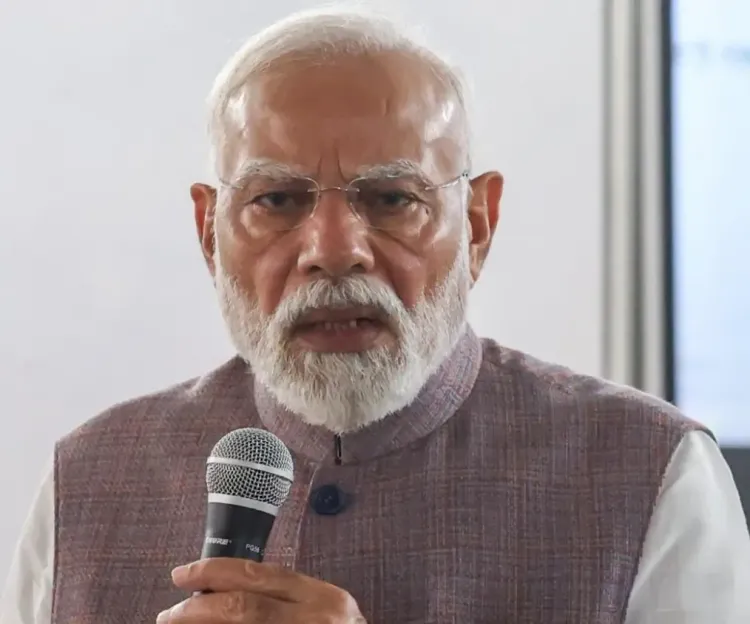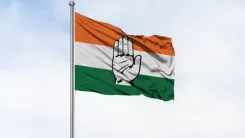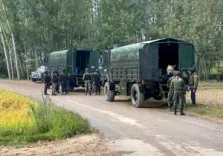What is Prime Minister Modi's Reaction to the Crisis in Nepal?

Synopsis
Key Takeaways
- Prime Minister Modi expresses deep concern regarding violence in Nepal.
- The Cabinet Committee on Security meeting highlights India's commitment to peace in South Asia.
- Protests erupted over a ban on social media, leading to tragic fatalities.
- Heightened border vigilance has been implemented by India.
- The political crisis continues to unfold with significant resignations.
New Delhi, Sep 9 (NationPress) Prime Minister Narendra Modi convened a session of the Cabinet Committee on Security (CCS) on Tuesday to deliberate on the recent turmoil in Nepal, where escalating violence has tragically claimed the lives of many, particularly among the youth.
The Prime Minister conveyed his profound sorrow regarding the circumstances, underlining the critical importance of stability, peace, and prosperity for Nepal.
“While returning from Himachal Pradesh and Punjab today, I led a meeting of the Cabinet Committee on Security to discuss the developments in Nepal. The violence occurring there is devastating. I am deeply saddened by the loss of so many young lives. The stability, peace, and prosperity of Nepal are paramount to us. I earnestly request all my brothers and sisters in Nepal to champion peace,” he expressed in a post on social media platform X.
This CCS meeting highlights India’s commitment to regional security and its dedication to peace and stability in South Asia.
In response, India has heightened vigilance at the border and has urged its citizens in Nepal to refrain from travel and remain indoors.
Currently, Nepal is grappling with a severe political and social crisis, ignited by a contentious government decision to prohibit 26 social media platforms.
This decision triggered widespread protests, especially among the youth, dubbed the Gen Z movement, where demonstrators asserted that the ban infringes upon free expression.
What initially started as peaceful protests swiftly escalated into violent confrontations with law enforcement. Reports indicate that at least 19 individuals have died and over 300 have been injured as police reportedly employed live ammunition, rubber bullets, and tear gas against the demonstrators.
The situation remains precarious, even though the government has rescinded the ban on social media.
The violence sparked widespread outrage and calls for accountability, prompting the resignation of key ministers, including Prime Minister K P Sharma Oli.
There are reports that Nepal's President Ram Chandra Poudel has also stepped down.
Flights to and from the capital have been suspended, and the Army has intervened to restore order.







